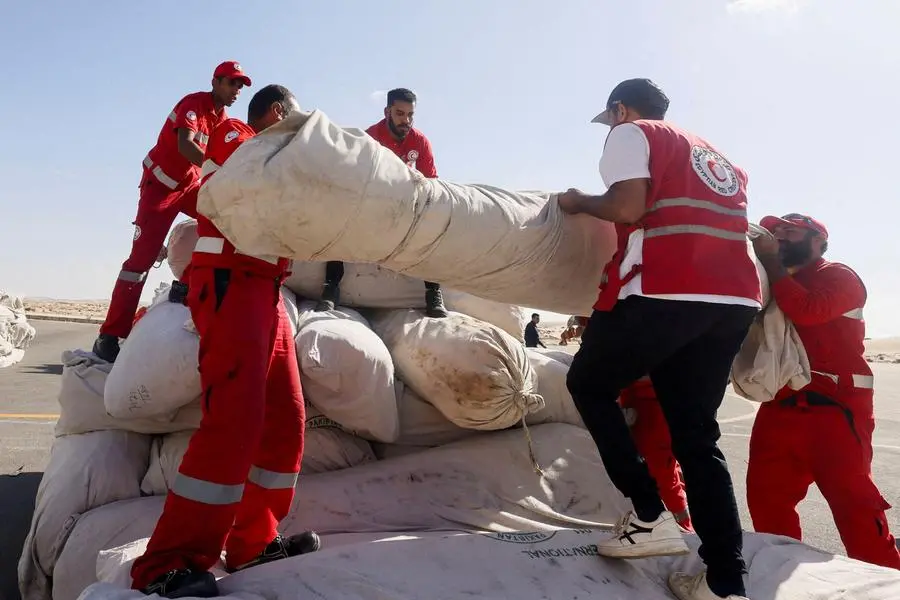PHOTO
GENEVA - U.N. agencies voiced hope that a shaky truce that began between Israel and Hamas on Friday would allow aid to flow to northern Gaza for the first time in weeks as fresh attempts to evacuate hospitals got under way.
Aid agencies have said they are aiming to deliver supplies to the northern part of the Palestinian enclave where hospitals have collapsed due to bombings and lack of fuel and where there are major concerns about deyhydration and disease in a situation described as a siege within a siege.
But they say a more permanent ceasefire is needed to deliver the mass amount of aid needed to address Gaza's full needs, with nearly three-quarters of the population or some 1.7 million people displaced, thousands killed and many more -- both dead and alive -- thought to be trapped beneath the rubble.
"We welcome the start of the humanitarian pause in Gaza and the movement of humanitarian aid, including for health. It's a step in the right direction, but much more is needed," said World Health Organization chief Tedros Adhanom Ghebreyesus.
Jens Laerke, spokesperson for U.N. humanitarian office OCHA, confirmed at a U.N. briefing that aid was flowing into Gaza, adding that he hoped the pause would lead to a ceasefire.
Asked whether the United Nations had guarantees from Israel that it could deliver aid to the north, Laerke said: "We proceed on the basis of the hope and the expectation that we will reach people in need, where they are."
Egypt says that during the truce 200 trucks will cross the Rafah crossing daily - more than double the recent average - and about twice the amount of fuel (130,000 litres) but it is not clear how the ramp-up will be managed.
That border crossing, intended for pedestrians, is the only one currently open and logistical limitations, bottlenecks and slow vetting processes have been constraining flows.
WHO spokesperson Christian Lindmeier said the agency was working on further hospital evacuations as soon as possible. "We're extremely concerned about the safety of the estimated 100 patients and health workers remaining at Al Shifa," he said.
Tommaso Della Longa, spokesperson for the International Federation of Red Cross and Red Crescent Societies told Reuters that its local partner had a convoy of ambulances heading north to evacuate patients from Ahli Baptist Hospital.
"We do hope that this pause in the fighting will give us the possibility of reaching all the people in Gaza, including areas in the north where it was impossible to have access," he said.
Other aid groups were sceptical that the short pause would make a difference.
"For medical operations, a four-day pause is a band-aid not healthcare. This is not humanitarian access, it's a joke," said Joel Weiller, Director General at Medecins du Monde.
(Reporting by Emma Farge in Geneva, John Irish in Paris and Aidan Lewis in London; Editing by Rachel More, Toby Chopra, William Maclean)





















